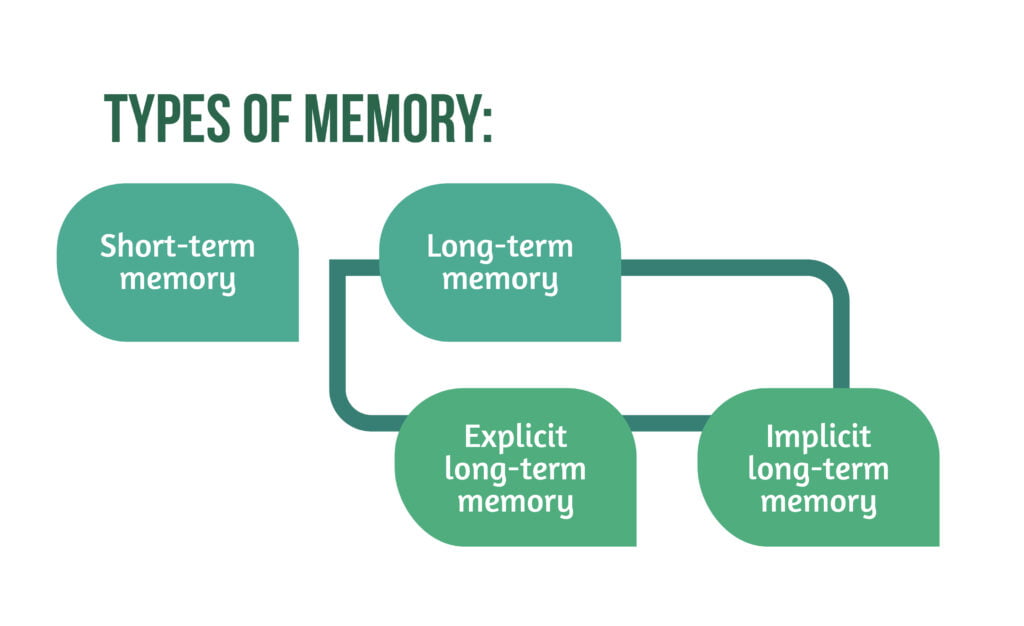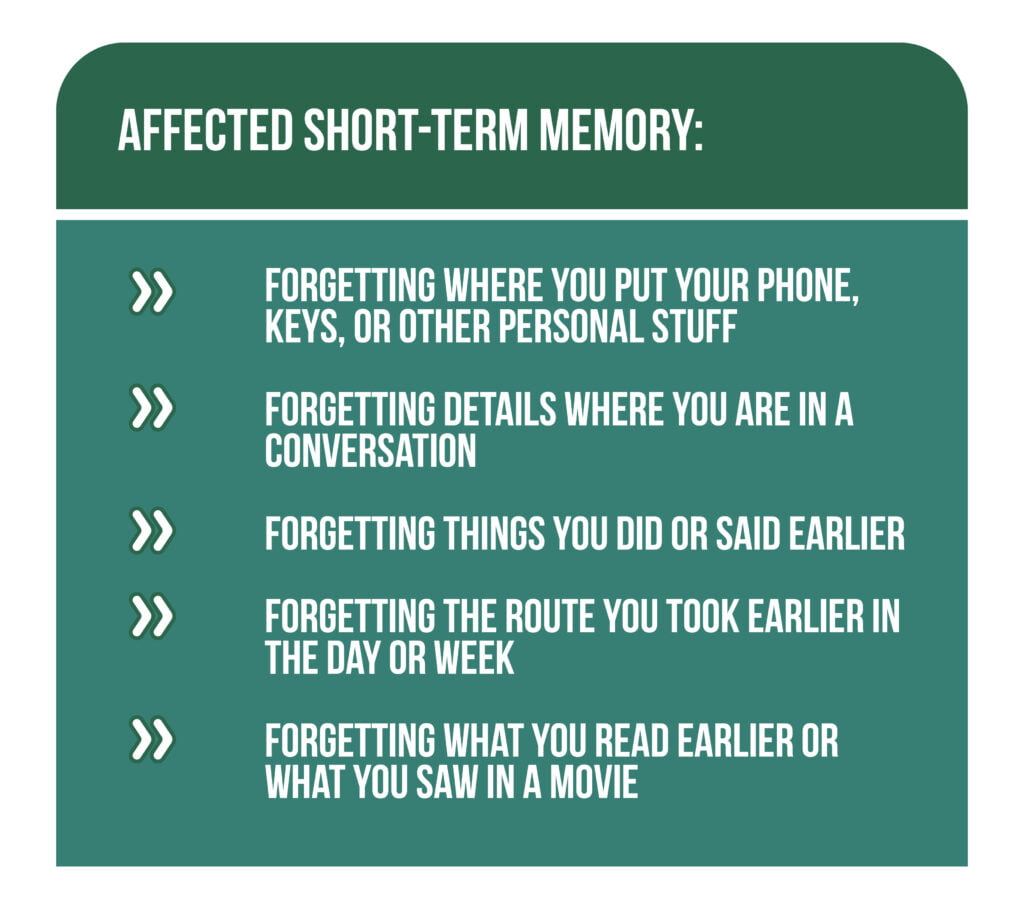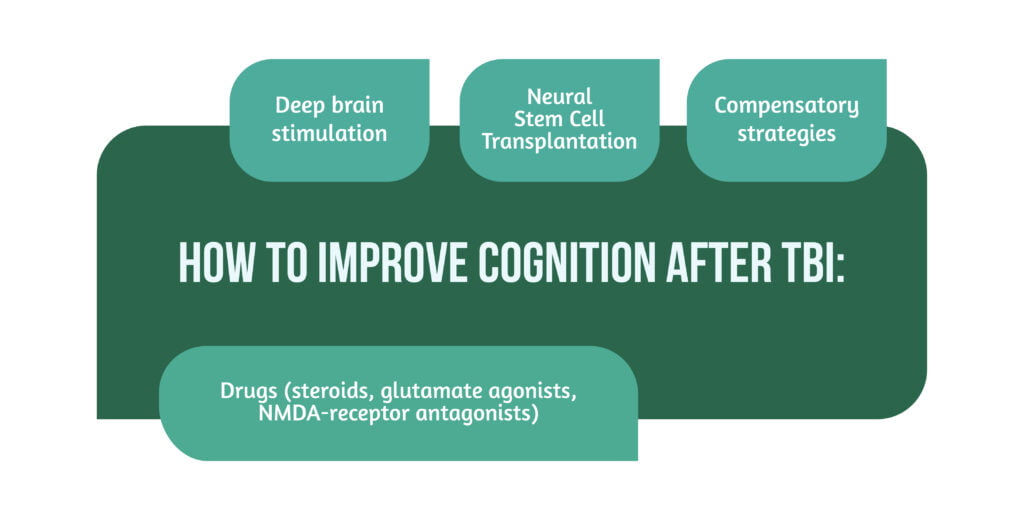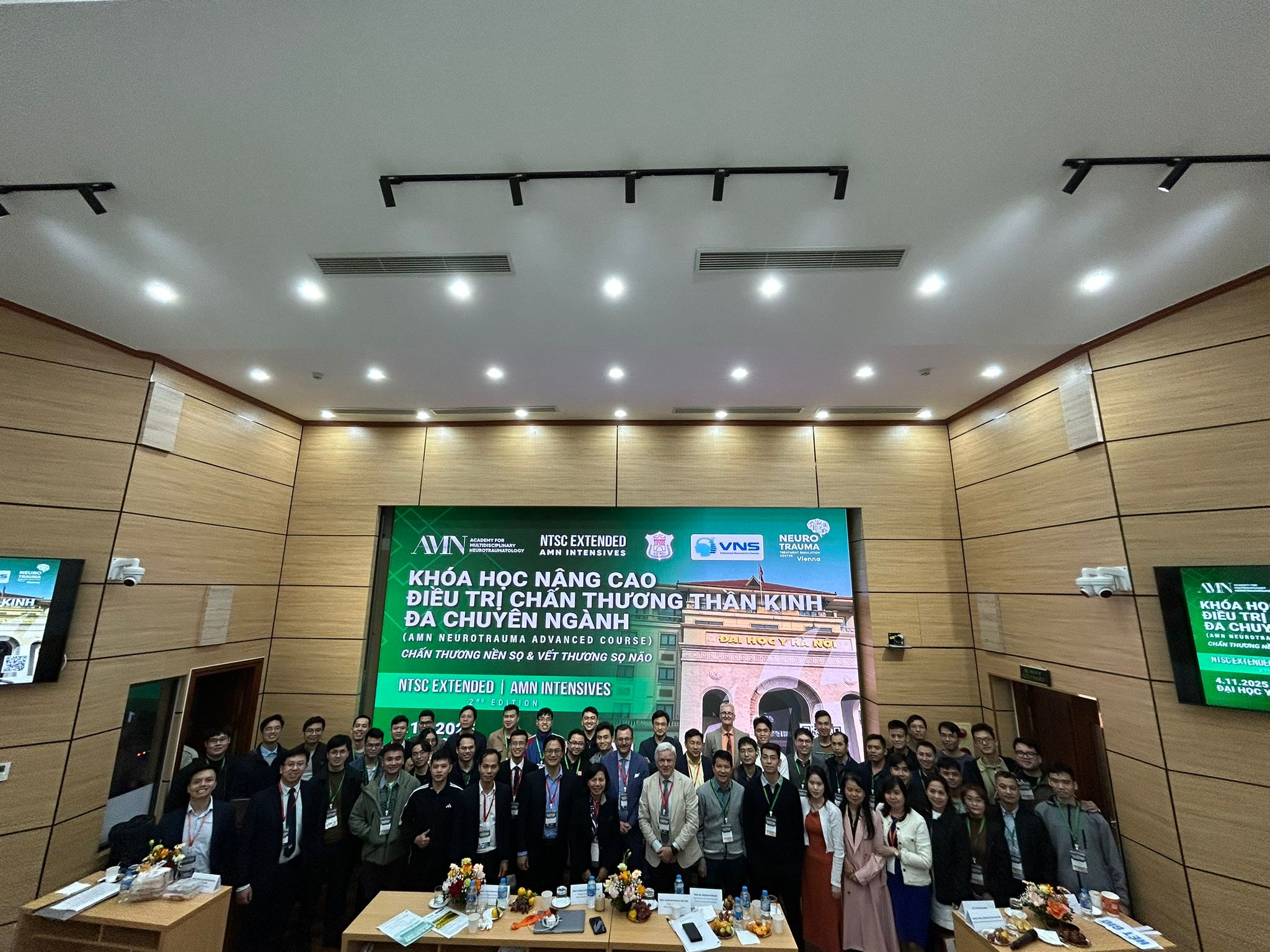Keywords: memory, TBI, short-term, long-term
Introduction | Can TBI affect your memory?
Memory represents an essential process in everyday life that involves storing, retaining, and later remembering the information to perform daily tasks. Memory issues usually occur after a moderate to severe TBI due to disruption of the neural circuits involved in memory function [1].
During a TBI the long nerve fibers are damaged due to the high mechanical forces to which are exposed, and the brain rotates or shifts inside the skull [2].
How does TBI affect memory?
Several types of memory complement each other and help us in everyday life. The main types of memory are long- and short-term memory, and prospective memory [2].
- Long-term memory is our brain`s way of storing different kinds of information such as language, facts, procedures, or memories. This memory helps us to remember a person`s name, how to ride a bike, and the way to your favorite restaurant. This kind of memory can be subdivided into two other forms:
- Explicit long-term memory- represents memories that we consciously remember, such as your best friend`s birthday, your phone number, and things that you learned during school years and childhood events.
- Implicit long-term memory refers to things that we can`t choose to remember or not. These kinds of memories affect our way of thinking or behaving. Implicit memory helps us to ride a bike after a long time in which we have not done this [3, 4].
- Short-term memory represents the information that is temporarily held in the mind for a short period. Then the information can be forgotten or can be transferred to long-term information (Figure 1) [3].

Usually, after a TBI patients don`t have problems remembering past events, they have difficulties learning new things, remembering what happened yesterday, or remembering new information learned. Short-term memory is affected and several issues can be encountered [2] (Figure 2).

- Prospective memory helps us to remember intentions from the past to do these things in the future. This kind of memory helps us to remember to call a friend back, to pay monthly bills, or to go to the store on the way home. The main issues in moderate- to severe TBI are [2]:
- Forgetting appointments or being confused about the date or hours.
- Forgetting important occasions (birthdays, family events).
- Forgetting to take medicines or don`t remember if you took it or not.
- Memory of the injury– refers to the memories related to the brain trauma. Usually, people with moderate- and severe TBI don`t remember the injury itself because their brains don`t store these memories and the single way to find out what happened is by asking witnesses what happened. This kind of amnesia is called post-traumatic amnesia and usually lasts for several weeks to months [2].
How can you improve your memory?
There are some strategies to improve cognitive dysfunction after TBI (Figure 3):

- Drugs (steroids, glutamate agonists, NMDA-receptor antagonists) were studied on animals to emphasize the effects on memory, but these don`t show an improvement in clinical trials [1].
- Deep brain stimulation is a method that uses electrodes implanted in the brain tissue and has shown improvements in the treatment of motor dysfunction in patients with Parkinson’s disease. This method is newer in the treatment of cognitive deficits after TBI, but some results show that this method improves memory performance in patients with severe TBI [1, 5].
- Neural Stem Cell Transplantation showed the ability to regenerate and repair the injured brain in studies on animal models. This method has some disadvantages because of the increased tumor risk and limited neural survival period. Another studied method with a better tolerance was bone marrow stromal cell transplantation. However, this method showed good results, but these were studied just on animals [1].
- Compensatory strategies are methods that try to diminish the impact of memory problems in daily life and try to improve memory functioning. These methods try reorganizing the neural modules by recruiting the undamaged circuits to compensate for the function of the damaged circuits [7]. Memory devices (using a grocery list, a note on the phone, or a notebook) are useful methods to remember the information you need, but also help to strengthen your memory. Some things that can help to improve memory difficulties are the following:
- Be focused and remove all the disturbing factors before performing the thing you want to remember.
- Be organized and use notebooks, calendar notes, or apps to have all the information in one place and to be accessible at any time.
- You should take your time to repeat all the things you need to remember.
- Use a drug organizer to take your medicines accurately and to be sure if you took them.
- Checklists are also good to remember the things you did and what else you should do.
- Keep all your essential things (keys, phone) in one place to avoid forgetting them at home when you leave [2].
People with memory problems can have difficulties at school, but also at their jobs where they should use their memory to learn and remember a lot of things. They need assistance and support from family, friends, and other organizations (e.g. Vocational Rehabilitation services) that are trying to help them and diminish their cognitive disabilities [2].
There are necessary future studies to establish how TBI affects memory and the useful methods to relieve impairments. Compensatory methods are good methods for trying to ameliorate the cognitive deficiencies, but newer methods show greater improvements in animals, there is necessary further research on TBI patients to emphasize the long-term effects and risks.
For more information about the impact of TBI visit:
- Can TBI affect taste and smell?
- The importance of prehospital care for severe TBI
- Mild TBI outcomes – lesssons from the CENTER-TBI study
We kindly invite you to browse our Interview category https://brain-amn.org/category/interviews/. You will surely find a cluster of informative discussions with different specialists in the field of neurotrauma.
Bibliography
- Paterno R, Folweiler KA, Cohen AS. Pathophysiology and Treatment of Memory Dysfunction After Traumatic Brain Injury. Curr Neurol Neurosci Rep. 2017;17(7):52. doi:10.1007/s11910-017-0762-x
- Memory and Traumatic Brain Injury | MSKTC. https://msktc.org/tbi/factsheets/memory-and-traumatic-brain-injury
- Types of Memory and their Functions. Verywell Mind. https://www.verywellmind.com/different-types-of-memory-and-their-functions-5194859
- Types of Memory. https://thepeakperformancecenter.com/educational-learning/learning/memory/types-of-memory/
- Kahana MJ, Ezzyat Y, Wanda PA, et al. Biomarker-guided neuromodulation aids memory in traumatic brain injury. Brain Stimulation. 2023;16(4):1086-1093. doi:10.1016/j.brs.2023.07.002
- New Buzz on Brain Stimulation for Depression – https://spectrum.ieee.org/new-buzz-on-brain-stimulation-for-depression
- Gopi Y, Wilding E, Madan CR. Memory rehabilitation: restorative, specific knowledge acquisition, compensatory, and holistic approaches. Cogn Process. 2022;23(4):537-557. doi:10.1007/s10339-022-01099-w




